Deaf Catholic community will celebrate anniversary Mass on Aug. 18 at Holy Innocents in Roseville
EASTPOINTE ─ For 50 years, the St. John’s Deaf Center has been a place where the Catholic deaf community in Detroit has gathered and been seen.
But more importantly, it’s been a place where they encounter the love of God.
The St. John’s Deaf Center will celebrate its 50th anniversary with noon Mass on Sunday, Aug. 18, at Holy Innocents Church in Roseville. This commemorates half a century of the deaf community having a worship site of their own.
A place where they can honor and praise the Lord in their language and become part of the Body of Christ.
“We provide people with a sense of belonging, that they feel part of a community,” Fr. Michael Depcik, OSFS, director of the St. John’s Deaf Center from 2011-23, told Detroit Catholic, through American Sign Language interpreter Veronica Balcarcel, the current director of St. John’s Deaf Center.
“We have people who come together to pray together, to eat together, to play together,” Fr. Depcik said. “They cannot do that in their own local churches because they have a different language.”
The Archdiocese of Detroit Catholic Deaf Community celebrates Mass every Sunday at 10 a.m. at Our Lady of Loretto Parish in Redford Township at the St. Valentine School chapel for the westside deaf community (that location celebrated its 40th anniversary of deaf ministry in March) and Holy Innocents Church in Roseville at noon.
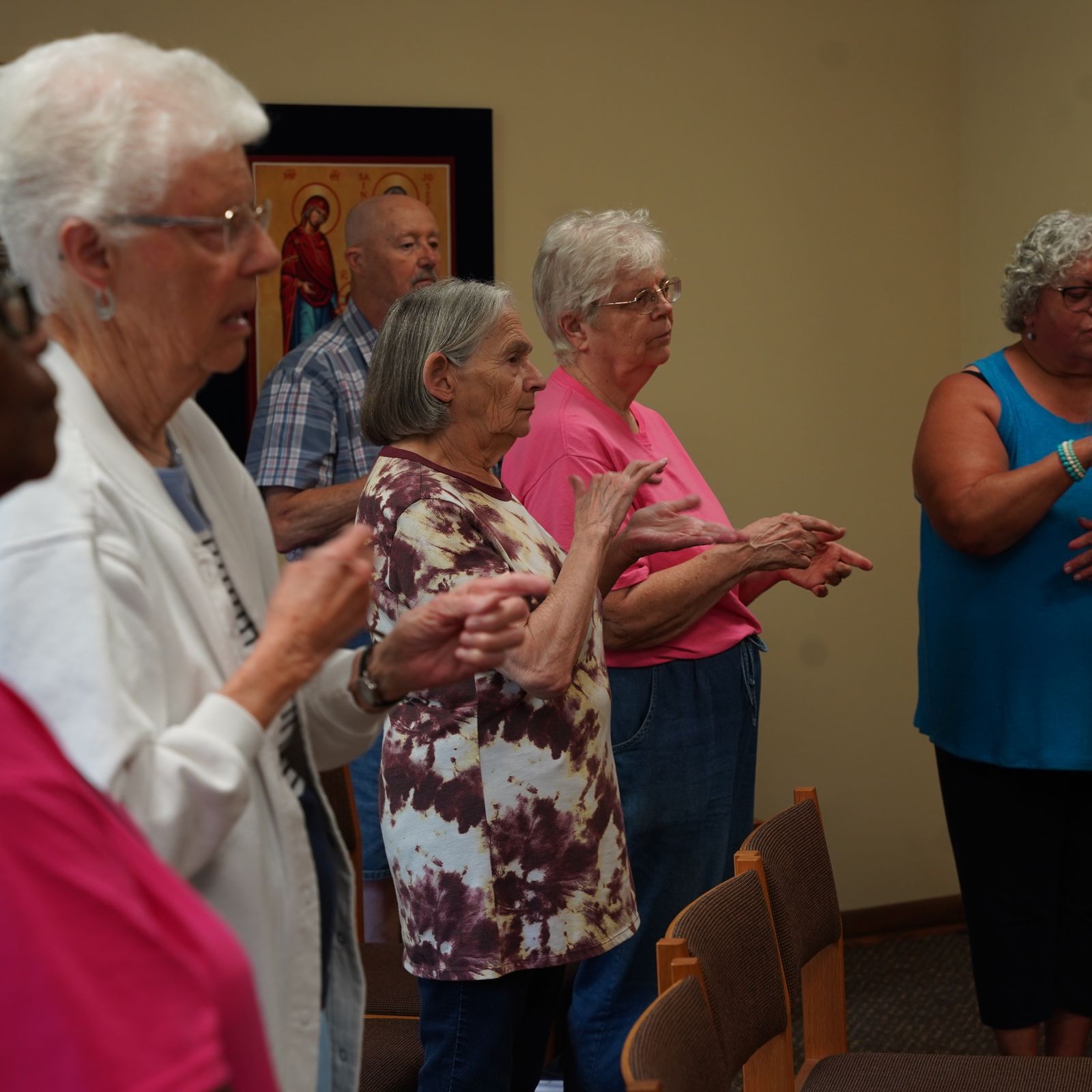
Mass is also celebrated at 10:30 a.m. every Tuesday at the St. John’s Deaf Center Chapel in Eastpointe, where the community gathers for a meal, recreation and fellowship following Mass.
“We provide them with opportunities to feel they belong to the church,” Fr. Depcik said. “We provide counseling services; if they want to talk to a priest or pastoral worker, we’re here. We also visit hospitals for those who are homebound and lonely. We also provide services for all the deaf community, so we are helping all the hearing churches that don’t have those specific services for deaf Catholics.”
St. John’s Deaf Center got its start on Sept. 11, 1974, when Cardinal John F. Dearden of Detroit celebrated the dedication Mass at the Ascension Parish’s school building in Warren on Fisher Street.
Deaf ministry in Detroit can trace its roots to before the St. John’s Deaf Center.
Fr. Henry Kaufmann of St. Joseph Parish on Jay Street in Detroit started a deaf ministry after noticing deaf Catholics in the area didn’t have a priest who would celebrate the Mass in sign language.
Fr. Kaufmann learned American Sign Language and offered the first Mass for the Catholic deaf community at St. Joseph’s on Oct. 11, 1914, establishing the St. Joseph Ephphatha Society. “Ephphatha,” meaning “to open” in Aramaic, is the command Jesus proclaimed to the deaf man in the Gospel of St. Mark before healing him.
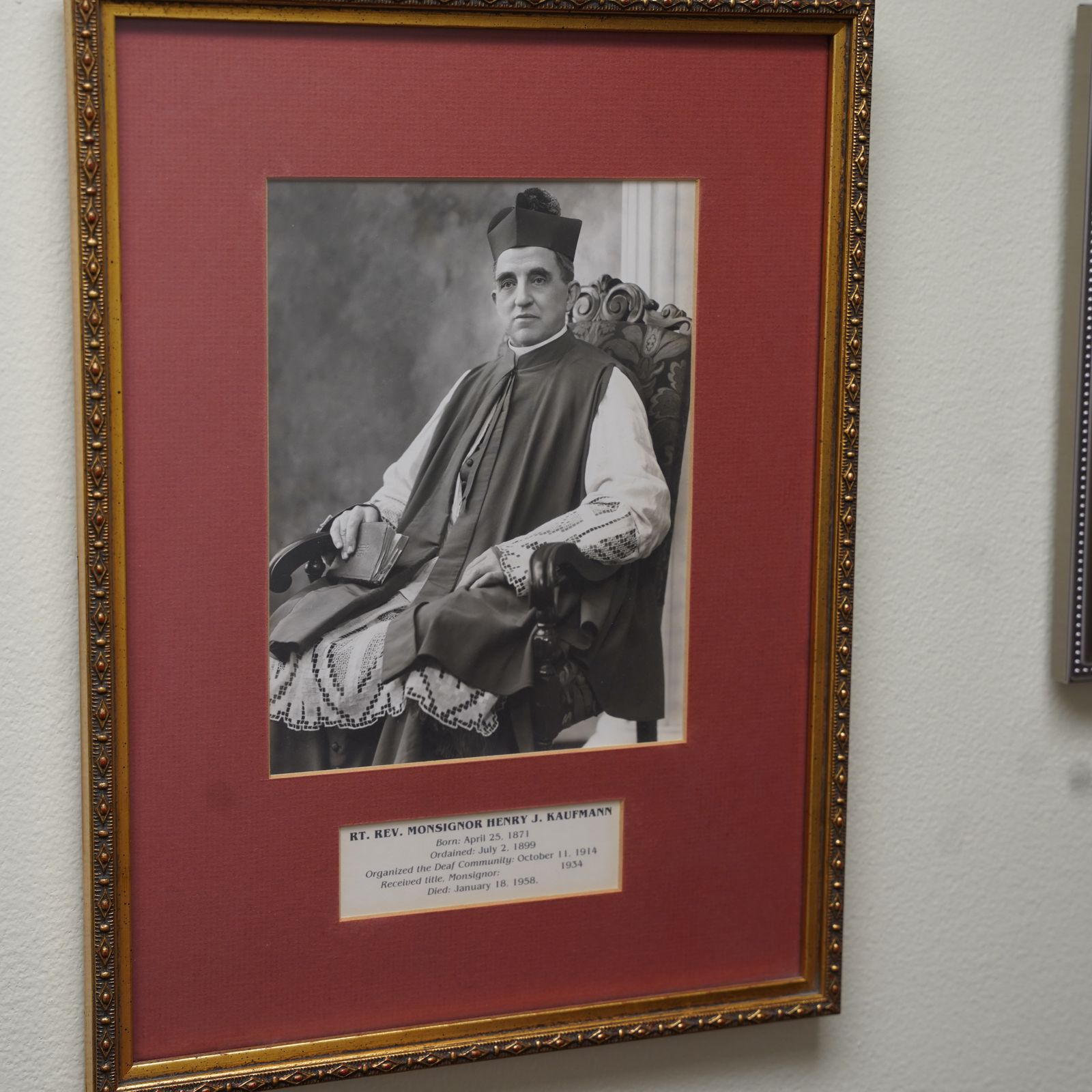
Deaf ministry bounced around several parishes before Cardinal Dearden established the St. John’s Deaf Center as a permanent location for deaf Catholics to receive the sacraments, with the center staffed by the Oblates of St. Francis de Sales.
Fr. Depcik, who himself is deaf and now ministers in the Archdiocese of Baltimore but still makes time to visit Detroit, calls the St. John’s Deaf Center a “hidden gem” in the community.
“Sometimes, the deaf community feels like we’re invisible because if we don’t sign, people don’t assume we are deaf,” Fr. Depcik said. “With other linguistic and cultural groups, it’s easier to recognize that they belong to this ethnic group or that. People hear the different languages and such. People recognize those with disabilities, who are blind, and who need help with mobility. But with the deaf, we are hard to recognize.”
Because the deaf community is hard to spot at first, Fr. Depcik said parishes struggle to reach out and minister to them, making it all the more important there is a center in the archdiocese that is catered specifically to the deaf community.
Mass is celebrated at the St. John’s Deaf Center with the priest – Fr. Ken McKenna is the current sacramental priest for the Archdiocese of Detroit Deaf Catholic Community – signing Mass and Balcarel interpreting for the hearing community, making the celebration inclusive.
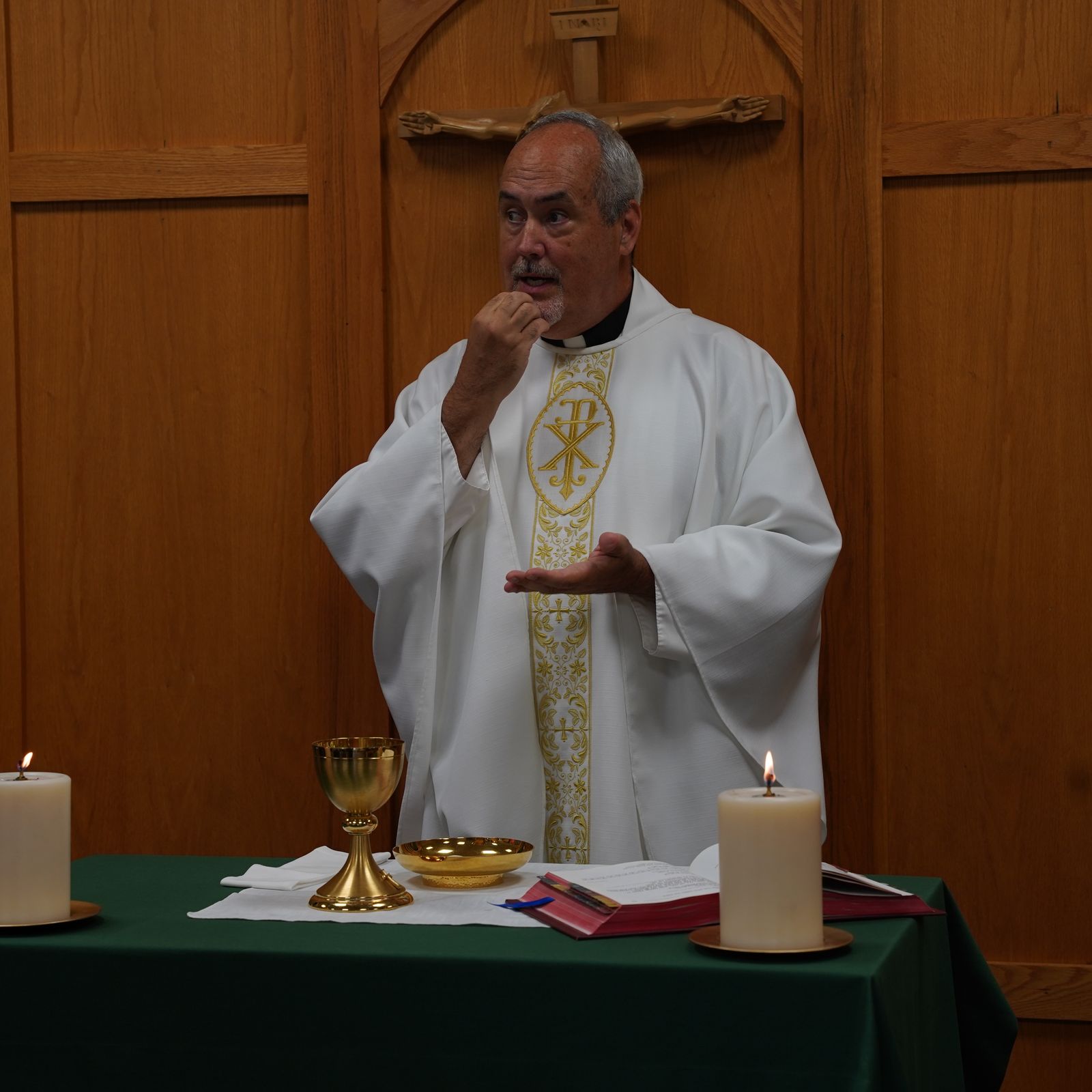
Having Mass specifically catered to the deaf community shines a light on different aspects of the faith or liturgy that the hearing community may miss at first, Fr. Depcik said.
“A lot of times the church emphasizes hearing, like hearing the music, hearing the Word of God,” Fr. Depcik said. “With the deaf, we emphasize the visual. We see the presence of God. We can’t use our ears, so we use our hands and our facial expressions to connect to God and one another, and we can see God through our eyes instead of our ears.”
One example where the deaf community has a particular insight into the Gospel message is from Mark 7:31-37, where the Gospel specifically notes Jesus took the deaf man away from the crowd before healing the man, showing how Christ knew He had to establish a one-on-one connection through facial expressions and gestures to properly “speak” to him – a situation many deaf people can relate to, Fr. Depcik said.
“That is the situation for people in their own homes during Christmas parties, birthday celebrations, Thanksgivings, they are sitting with their families, but they are left out if the family members don’t sign,” Fr. Depcik said. “A lot of times when deaf people are in a crowded situation, they go away so they can be one-on-one and connect with a person. So Jesus brought him to a quiet place where He could speak through gestures directly to the man and tell him how much he was loved.”
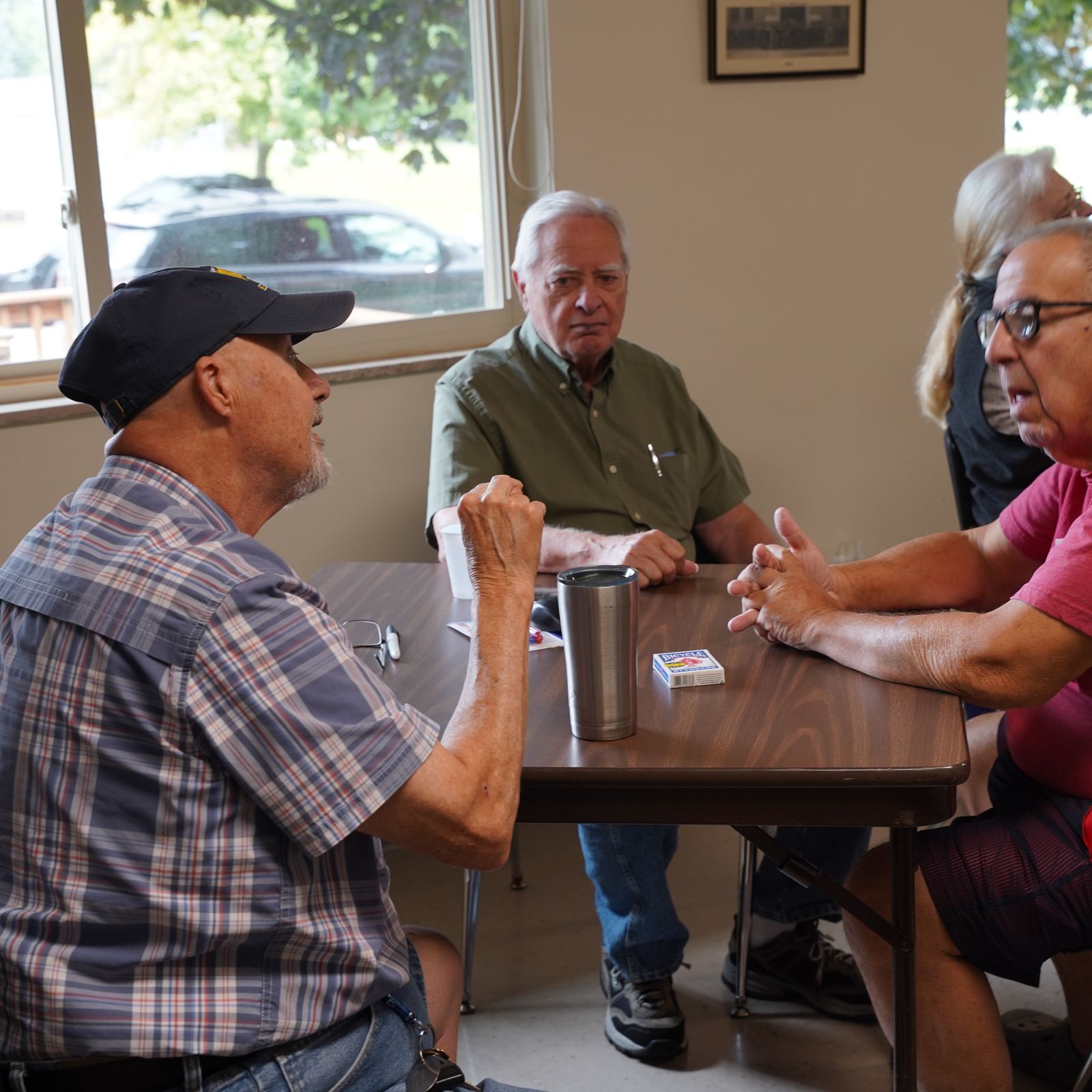
Jesus spoke the word “Ephphatha” to the man, but Fr. Depcik said the word means so much more than to have one’s ears open, it digs deeper into being open to the community, which is what the St. John’s Deaf Center provides.
“What Jesus said was ‘Ephphatha,’ be open to the community, because in other stories when Jesus helped the paralytic, He said stand up and walk,” Fr. Depcik explained. That person with the hand that was crippled, He said, ‘Stretch our your hand.’ He was very specific about what He wanted to do. He didn’t say, ‘Hear,’ He said, ‘Be open,’ so it has more to do than just the hearing itself. It is about the whole person feeling like they belong, that they are understood.”
It is that feeling of belonging and being understood that has people coming back to the St. John’s Deaf Center for 50 years.
Diane Knight’s family grew up at St. John the Evangelist Parish in Detroit before coming to St. John’s Deaf Center when it opened in 1974. She is thankful for all the ministers who served at the center of the years, saying the St. John’s Deaf Center is a cornerstone in her life.
“When I lost my husband, I was very young, and I think socializing with the deaf people helped lift me up to remain positive,” Knight said through Balcarel’s ASL interpretation. “I was able to go to different places to socialize with the community, and I truly appreciate the support of the priests we’ve had, because they are amazing.”
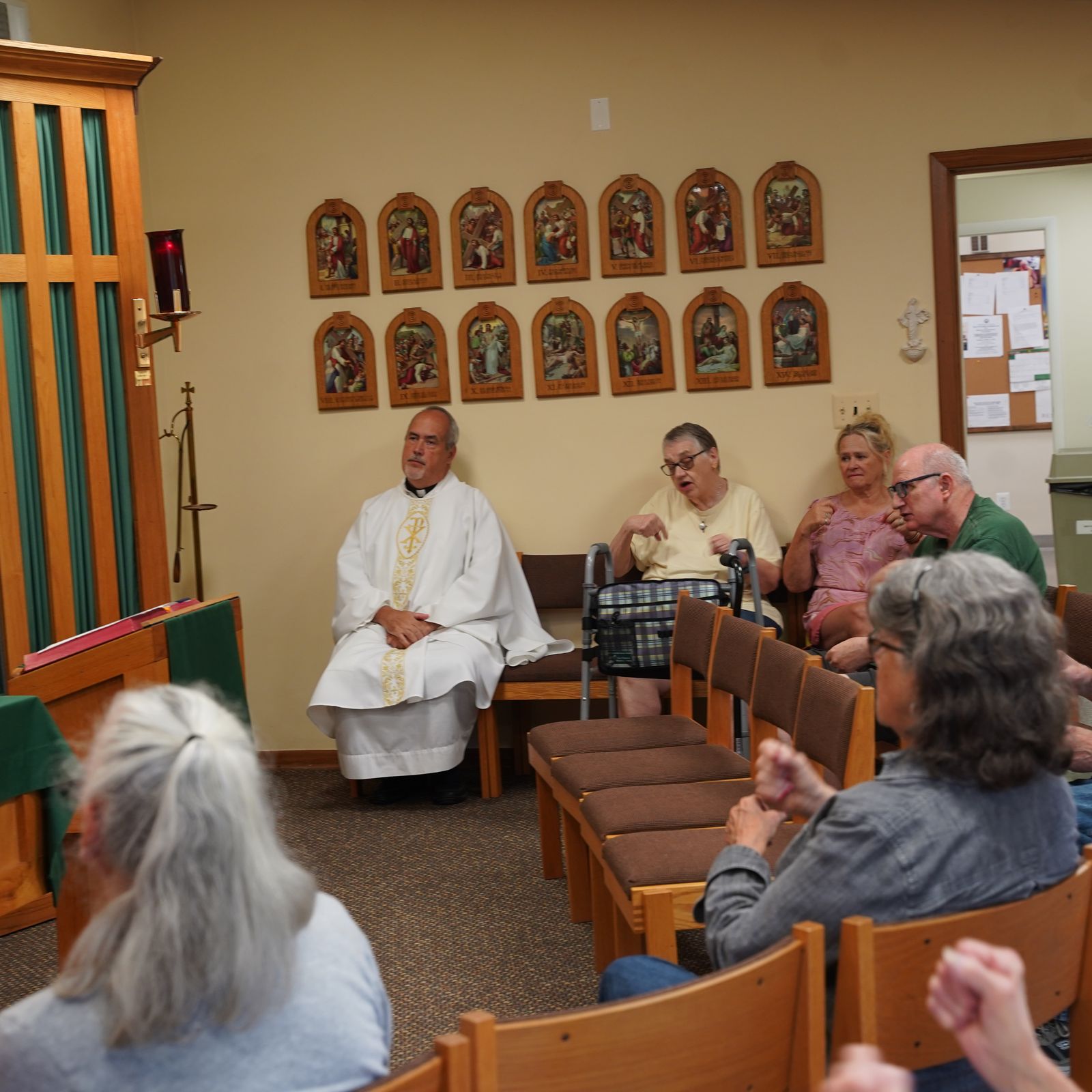
Paul Kuplicki has volunteered at the St. John’s Deaf Center since it opened, serving in a variety of capacities from parish council president to financial officer and volunteer staff.
Kuplicki’s parents were also deaf, so his family got involved in St. John’s right away, with Kuplicki returning home from college to help paint the first St. John’s Deaf Center at Ascension School on Fisher Avenue in Warren.
“I feel St. John’s is a place where we can come together, it’s a place where we can belong, a church place where we belong,” Kuplicki said. “We can see, we can sign, we can understand Mass. We feel like we’re part of the community, we can be the readers, the ushers, we are fully involved.
“I feel like sometimes the hearing community doesn’t ask us to be involved, to be readers or involved in the liturgy as ministers,” Kuplicki added. “For example, when we go to the Cathedral for Chrism Mass, I can see other people being asked to help, but they don’t ask us to be the readers or anything. So it’s a challenge for us to connect to the wider church.”
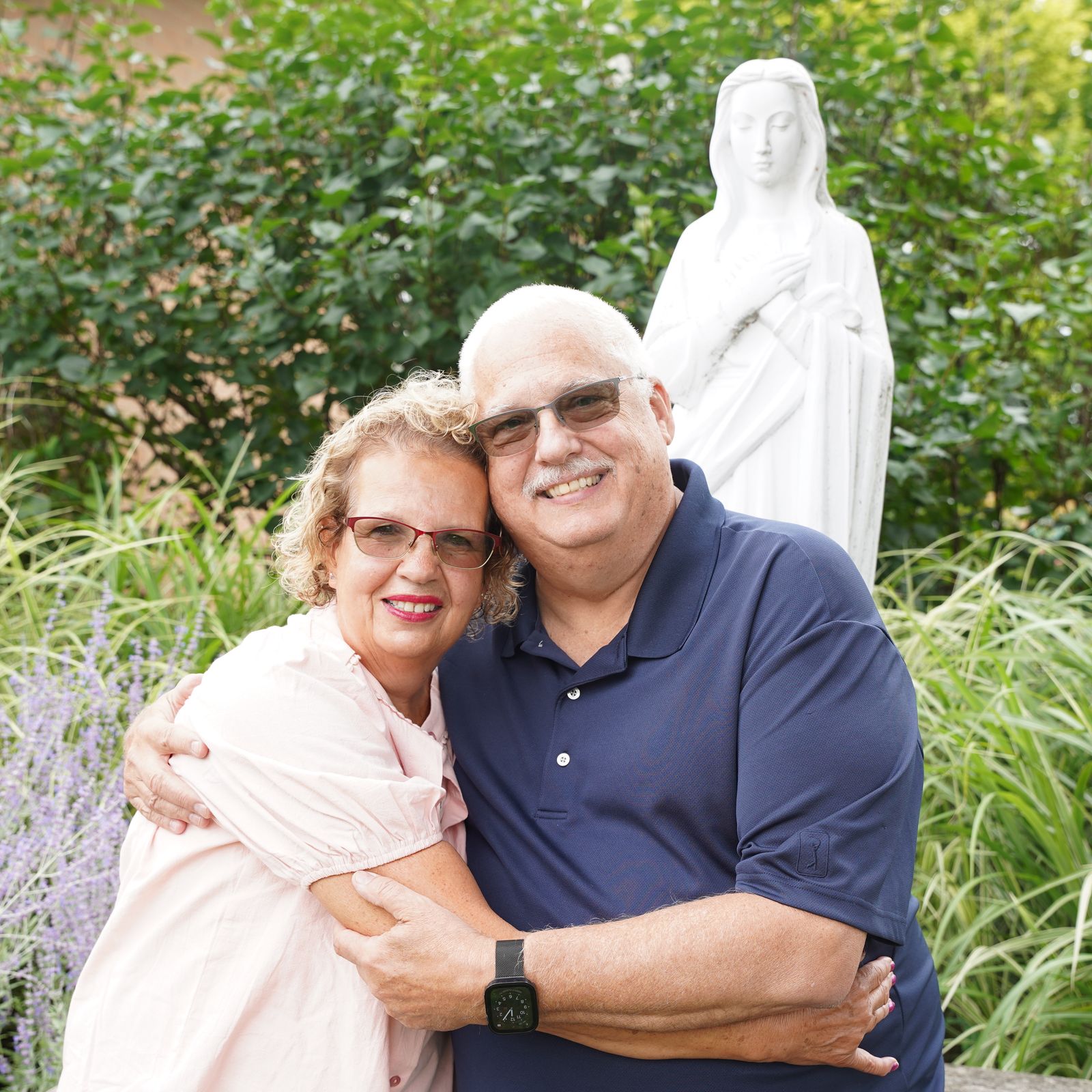
Kuplicki’s wife and two adult children are all deaf, so having a worship space of their own where they can participate in the liturgy, be part of a faith community and come to know God better in their own language have been essential in keeping God present in their lives.
It’s a blessing he thanks to the priests who over the years have gone the extra mile to minister to deaf Catholics.
“We have been blessed to have wonderful priests, like Fr. Mike Depcik, who’s deaf, but other priests in the hearing community who see the deaf community can do anything anyone else can,” Kuplicki said. “I can’t imagine not having St. John’s Deaf Center. We need to be very appreciative of the Archdiocese of Detroit because they have been really supportive of the deaf community.”











